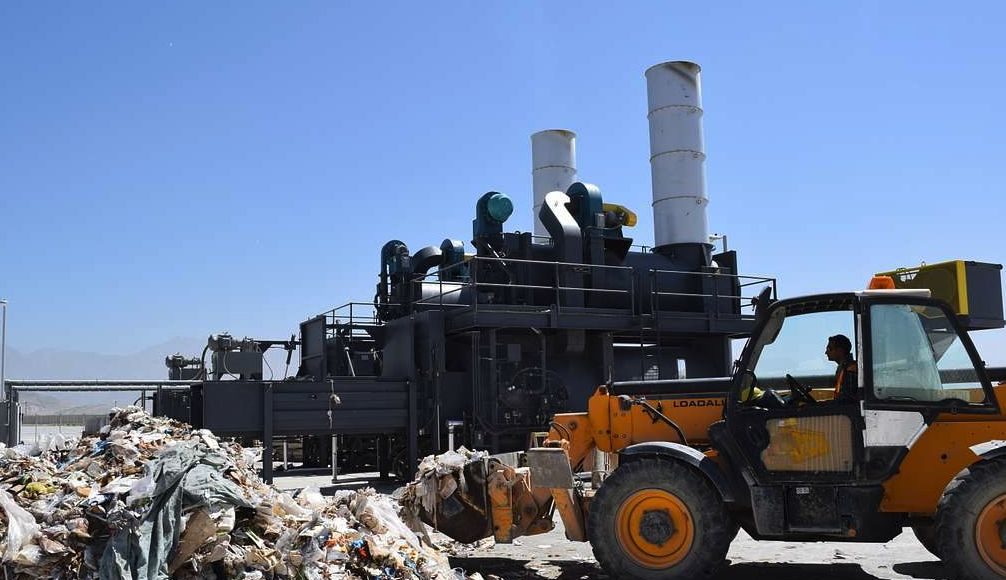The world’s waste crisis is often overlooked; yet managing it is a cornerstone of the fight against climate change. Achieving true sustainability will require more than government action; it demands innovation from the private sector. A new wave of companies is stepping up, deploying practical solutions that are already making a measurable impact.
Waste management isn’t a glamorous topic, but its persistent absence from top-level international climate and development agendas is a critical miss. We cannot effectively address the global climate crisis, rampant pollution, and accelerating biodiversity loss without directly confronting how we manage our waste.
The world is drowning in trash, and the problem is only getting worse. UNEP’s Global Waste Management Outlook 2024 forecasts that by 2050, the amount of municipal solid waste we generate is projected to nearly double, from 2.1 billion tonnes today to a staggering 3.8 billion. This isn’t just an environmental crisis; it’s a financial one. In 2020, the direct global cost of waste management hit an estimated $252 billion. But the true price tag is far higher. When factoring in the hidden tolls of pollution, public health issues, and climate change caused by inadequate disposal, that figure soars to $361 billion. Without immediate and drastic action, this annual global expense could nearly double by 2050, reaching an unsustainable $640.3 billion. Such a crippling financial burden would make achieving the United Nations Sustainable Development Goals virtually impossible.
This pervasive and escalating problem is evident across continents. In the United States, every second, Americans throw away enough trash to fill three Empire State Buildings, while an estimated 90 percent of waste is openly dumped or burned in many Southeast Asian nations. Issues like these aren’t just local; trash generated in one country frequently crosses international borders, contaminating oceans and land, and directly threatening human and animal life. A grim reality of this interconnected crisis is right now unfolding in Ghana, where a vast accumulation of discarded clothing is now overwhelming an internationally recognized wetland. This critical habitat, home to three species of sea turtles, is choked with synthetic fast-fashion garments, while fishing nets, waterways, and beaches are increasingly clogged with textiles exported from the UK and the rest of Europe. Meanwhile, halfway around the world, a significant portion of the plastic waste polluting the world’s oceans originates from the ASEAN region, with over 80 percent of marine debris flowing from its shores. This pervasive contamination degrades water quality and depletes vital natural resources across the globe.
Multiple solutions to be developed
Public agencies and nations recognize the importance of reducing waste. The World Bank Group, for instance, allocated over $5 billion in solid waste management financing from 2003 to 2021. Sweden stands out with its robust “Waste-to-Energy” program, sending just 1% of its waste to landfills. Yet, these commendable initiatives are not enough to curb the escalating problem. While current mechanisms represent a step forward, a much broader and collaborative effort is essential to truly achieve global waste reduction. Public entities alone cannot solve this as technology, innovation, and experience are arguably the most critical drivers for change in this sector. The private sector involvement is crucial, not only for funding but also for providing the necessary exposure and partnerships to scale innovative solutions.
Trailblazers in this change are major corporations, those like SUEZ, an environmental services group headquartered in France with a vast global presence. With over 160 years of experience, SUEZ has evolved far beyond traditional “collect, sort, treat” waste services. Today, it acts as a key advisor to both public entities and private businesses, guiding them toward more sustainable waste management and the adoption of circular economy principles.
A prime example of this transformative approach is the group’s recent collaboration with automotive giant Renault Group. Recognizing the industry’s significant environmental footprint and the pressing need for sustainable materials, the two global leaders launched “The Future Is NEUTRAL” initiative. This partnership aims to drastically reduce the automotive sector’s reliance on virgin natural resources, proactively address evolving environmental regulations, and establish robust new supply chains for recycled materials and parts.
SUEZ’s public sector partnerships are equally critical, directly addressing the escalating challenge of household and industrial waste and its environmental impact. This work is vital for creating healthier, greener communities.
A textbook case here is Morocco, a nation grappling with the dual pressures of rapid demographic growth and climate change, which exacerbate its waste management crisis. To confront these issues, SUEZ has signed four new agreements, focusing on developing “green landfills” and advanced waste treatment centers to foster a circular economy. In the Moroccan Rabat-Salé area, SUEZ and its partners will convert an existing landfill into a “green site.” This transformation is projected to significantly reduce the volume of waste sent to landfill and will generate biogas from collected leachate, turning a pollutant into a usable energy source. Similarly, in Kenitra, one of Morocco’s largest cities with nearly 500,000 residents, a new waste treatment and recovery center will also recover the waste received, converting it into local, sustainable energy. These projects will complement SUEZ’s existing environmental initiatives in Morocco, providing crucial infrastructure investment, supporting industrial transformation, and directly contributing to sustainable energy generation for the nation.
Beyond traditional waste management firms, a growing number of other organizations are setting to help tackle the problem of garbage as well. This widespread concern is entirely logical, given that waste generation is a universal byproduct of human activity. The more attention this issue receives, the greater our collective potential to forge sustainable paths toward a cleaner planet.
This view became a starting point for Ramboll, an engineering and specialist services firm based in the MENA region. The company is addressing critical waste management challenges by prioritizing public awareness, and believes that effective waste solutions hinge on a better-informed populace. Yassmin Al-Khatib, an associate with Ramboll Middle East and Africa, asserts that these educational efforts are driving a crucial shift. She observes that as both the public and businesses gain awareness of waste issues, their contributions to sustainability increase: “Through awareness programs, people realize the direct impact they have on waste generation and how they can influence change,” explains Al-Khatib.
Effectiveness of the educational efforts has already been proven in Jubail City, UAE, through its Industrial Waste Management and Recycling project. This initiative aims to mitigate the risks associated with industrial waste, minimize harmful emissions and curb the climate impact of disposal. It also cultivates public awareness through strategic partnerships with local schools, universities, and industrial businesses. These partners collaborate by providing educational resources, organizing events and workshops, offering financial support, and contributing to curriculum development. The results are tangible: In 2022, Jubail successfully recycled 58.3 percent of its total waste. This achievement slashed the city’s annual greenhouse gas emissions by approximately 400,000 metric tons, demonstrating how educational outreach underpins both environmental sustainability and broader climate mitigation efforts.
Ramboll also highlights social media’s significant role in educational progress, but awareness campaigns are just one part of a larger tech-driven shift. The entire sector is modernizing at a rapid pace, attracting a wave of private innovation. A prime example is the Indian company WeVois. Founded in 2018, it provides an Internet-of-Things (IoT) platform for smart, door-to-door waste collection in urban areas. This technological approach tackles a critical flaw in traditional systems, which often miss 30-40% of households and lead to harmful practices like open dumping and burning.
The company’s app first maps an area, identifying waste sources like residences, hotels, and hospitals. It then calculates the most efficient collection route based on the number of trucks available and time constraints. Drivers follow this optimized path via the app, which provides estimated speeds and completion times. Yet, reliable collection is only half the battle. Many cities have waste processing plants that sit idle because they receive contaminated or inconsistent materials. WeVois addresses this by ensuring a steady supply of sorted waste to recyclers. The company not only provides regular collection services—employing over 1,000 people—but has also established its own processing plants to handle the waste stream effectively.
WeVois operates on a modern principle: solving a social crisis can be a viable business model. Co-founder Abhinav Shekhar Vashistha emphasizes the company is run for profit, not just for social impact, proving that value can be built on managing waste effectively. Backed by both public and private investment, the company has set an ambitious goal: ensure a stable revenue stream while creating 100 zero-waste cities across India within ten years, and in his belief Vashistha knows that the world can tackle its waste management crisis. The sentiment is gaining traction not in India only, but globally, as evidenced by a growing number of market participants who are prioritizing collaboration and investment in practical solutions. This shift reflects growing awareness and engagement that contribute towards the environment and to our societies at large, and instills confidence that all the efforts will eventually bring a much-needed change.







